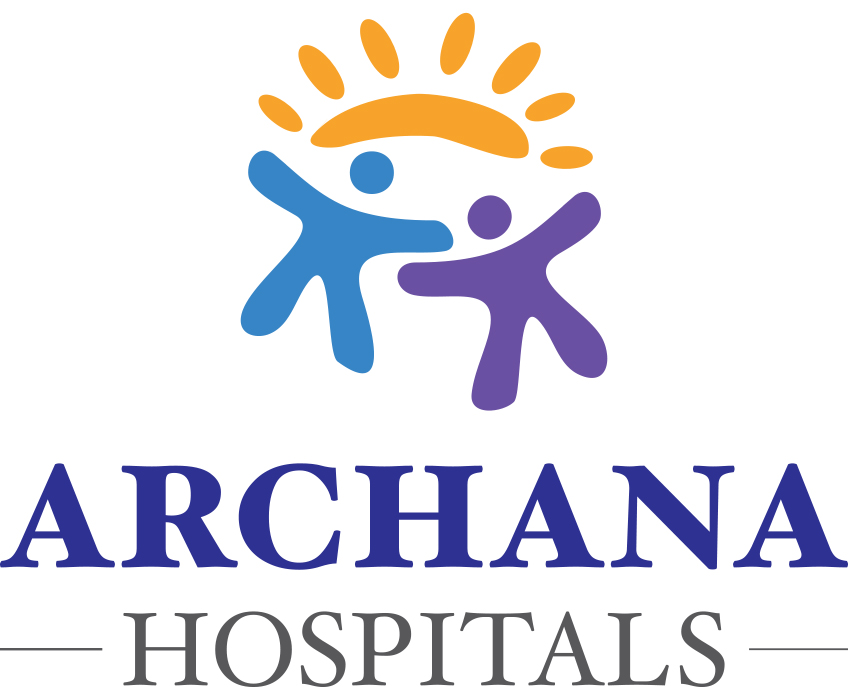Sports injuries are an inevitable part of an active lifestyle. Whether you’re an amateur runner or a professional athlete, the risk of injury always exists. However, understanding the types, causes, prevention strategies, and treatment options can make a significant difference in how you manage and recover from these injuries.
In this blog, we’ll explore everything you need to know about sports injuries, with insights into how Archana Hospitals, the best orthopedic hospital in Hyderabad, can help you get back to your best.

Sports Injuries
Sports injuries are injuries sustained during physical activity, exercise, or sports. These injuries can range from minor sprains to severe fractures, affecting different parts of the musculoskeletal system, including bones, muscles, ligaments, and tendons.
Types of Sports Injuries:
- Sprains and Strains: Sprains involve ligament injuries, while strains affect muscles or tendons.
- Fractures: Breaks in bones caused by impact or stress.
- Dislocations: When a joint is forced out of its normal position.
- Tendon Injuries (e.g., Achilles tendon rupture): Injuries to tendons that can cause pain and limited movement.
- Ligament Tears (e.g., ACL tears): Common in knees, these tears can significantly impair stability.
- Overuse Injuries (e.g., stress fractures): Caused by repetitive motion, leading to chronic pain or fractures.
Causes of Sports Injuries
Sports injuries can happen to anyone, and the causes often go beyond a single incident. Here are some of the primary factors:
- Inadequate Training: The body is not prepared for physical exertion due to lack of proper training.
- Wrong Equipping: Unsuitable or faulty equipment may become a cause for injury.
- Poor Technique: Incorrect posture or movements can strain muscles and joints.
- Overtraining: This condition is brought about by driving the body beyond its limiting conditions without sufficient rest.
- Lack of Warm-up and Stretching: Skipping these essential steps increases the risk of muscle pulls and strains.
Prevention Strategies
Preventing sports injuries is often about taking proactive steps to ensure safety and readiness.
- Proper Training and Conditioning: Gradual training increases endurance and decreases the risk of injuries.
- Wearing proper gear and protective equipment in good-fitting shoes is essential.
- Importance of Warm-up and Cool-down: Stretching prepares muscles for activity and prevents stiffness post-exercise.
- Adhering to rules and techniques: proper techniques and safety guidelines minimize risk.
- Recognize and respect physical limits: Listen to your body and avoid pushing beyond what feels safe.
Immediate First Aid Measures
When a sports injury occurs, quick and effective first aid can prevent further damage.
The RICE Method:
- Rest: Stop the activity to avoid worsening the injury.
- Ice: Apply a cold pack to reduce swelling.
- Compression: Use an elastic bandage to provide support and control swelling.
- Elevation: Keep the injured area raised to reduce blood flow and swelling.
When to Seek Medical Attention:
If the pain persists, there’s significant swelling, or the range of motion is severely limited, it’s time to consult a professional. Archana Hospitals, the best ortho hospital in Hyderabad, provides immediate and expert care for sports injuries.
Treatment Options
The treatment for sports injuries depends on the severity and nature of the injury.
Non-Surgical Treatments:
- Physical Therapy: Aims to restore mobility and strengthen the affected area.
- Medications: Anti-inflammatory drugs to manage pain and swelling.
- Orthobiologics (e.g., PRP Injections): Advanced treatments that promote healing using the body’s own cells.
Surgical Interventions:
- Arthroscopic Surgeries: Minimally invasive procedures for joint injuries.
- Joint Replacement Surgeries: For severe damage requiring joint replacement.
Rehabilitation and Recovery:
Post-treatment rehab is essential to regain strength, mobility, and confidence.
Understanding Hidden Injuries
Not all injuries are immediately visible. Hidden injuries, such as stress fractures or concussions, often go unnoticed but can cause long-term damage.
Why Early Detection is Important:
Ignoring subtle signs like persistent pain or fatigue can worsen the injury over time. Regular medical check-ups and diagnostic imaging at Archana Hospitals can help identify these hidden injuries early.
Choosing the Right Orthopaedic Care in Hyderabad
Selecting the right hospital and specialists is crucial for effective treatment and recovery from sports injuries.
Why Choose Archana Hospitals?
Recognized as the Best Orthopaedic Hospital in Hyderabad, Archana Hospitals offers comprehensive care for sports injuries through its highly specialized Orthopaedics Department.
Services Offered:
- Advanced Diagnostic Imaging: Accurate identification of injuries with state-of-the-art technology.
- Minimally Invasive Surgeries: Ensuring quicker recovery and minimal scarring.
- Comprehensive Rehabilitation Programs: Tailored rehab plans to restore function and mobility.
At Archana Hospitals, our experienced orthopaedic surgeons, renowned as the best orthopedic doctors in Hyderabad, provide personalized care to help you recover and get back to your active lifestyle.
Frequently Asked Questions
Sports injuries are physical injuries that occur during exercise or sports activities, affecting the musculoskeletal system.
Common causes include inadequate training, improper equipment, poor technique, overtraining, and lack of warm-up or stretching.
Hidden injuries like stress fractures or concussions are not immediately noticeable but can cause long-term issues if untreated.
You should consult a doctor if you experience severe pain, swelling, restricted movement, or if symptoms persist despite initial first aid.
Look for hospitals with experienced orthopaedic specialists, advanced facilities, and comprehensive rehabilitation programs, such as Archana Hospitals, the best orthopedic hospital in Hyderabad.
At Archana Hospitals, we’re committed to providing world-class orthopaedic care to athletes and active individuals. Whether it’s a minor sprain or a major injury, our specialists are here to ensure you recover stronger than ever. Visit us in Madinaguda or Chandanagar to experience care you can trust.


